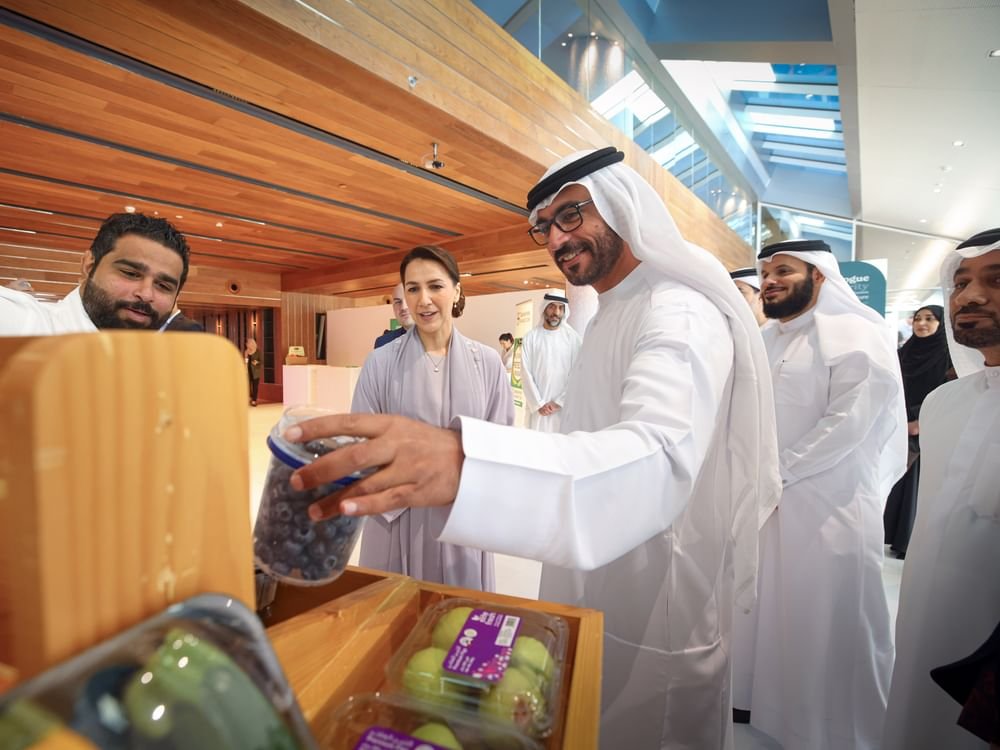Thursday, 5 March 2026
UAE launches ‘Ne’ma’ Food Loss and Waste Reduction Roadmap to reduce food waste
The roadmap will serve as a collective effort to reduce food waste by creating new social norms, scaling best practices, and enabling policies across the entire food ecosystem Mariam bint…

The roadmap will serve as a collective effort to reduce food waste by creating new social norms, scaling best practices, and enabling policies across the entire food ecosystem
Mariam bint Mohammed Almheiri, Minister of Climate Change and the Environment of announced ‘Ne’ma Food Loss and Waste Reduction Roadmap,’ a strong action plan to reduce food loss and waste in the UAE by 50 per cent by 2030.
The roadmap was announced at the fourth National Dialogue on Food Security organised by the Ministry of Climate Change and Environment with ne’ma, the National Food Loss and Waste Initiative, and held under the theme, ‘Call for Change: Reducing Food Loss and Waste in the UAE.’
Announcing the strategic roadmap, Almheiri said, “With only a few days away from our nation hosting COP28, this event underlines the strong commitment of the UAE in addressing all sectors that have a defining role in addressing the impact of climate change. And food and agriculture systems play a pivotal role in this regard, especially with food loss and waste one of the core challenges that humanity must address as a priority.”
The roadmap will serve as a collective effort to reduce food waste by creating new social norms, scaling best practices, and enabling policies across the entire food ecosystem, said Almheiri. “Our strategy is to mobilize all the stakeholders and accelerate action with a holistic and government-led approach. We will build capacity for food loss and waste monitoring, foster public-private partnerships for food loss and waste solutions, leverage innovative approaches to build the circular economy and introduce new mandates and policies. Our goal is to become a nation where no food is wasted.”
In the run-up to setting the strategy for food loss and waste reduction, over 200 interviews were held with the food value chain and system-level actors, in addition to several workshops for collective ideation. At the event, Jumeirah Group, Hilton Group, Rotana Group and Expo City signed agreements with ne’ma to embrace food loss and waste reduction as a top priority.
Technology
Copeland Launches ZF/ZFI 10-20HP Scroll Compressors
Mar 05, 2026 | Company News
WA Scientists Discover New Deep-Sea Crustacean Stocks with Strong Commercial Potential
Mar 05, 2026 | Australia
Food Testing
NSF and Circle H Collaborate to Enable Global Certification Access
Mar 04, 2026 | Company News
Australian Medical Bodies Push for Compulsory Health Star Labelling
Feb 24, 2026 | Australia
Tim Hortons Singapore Secures Majlis Ugama Islam Singapura Halal Certification Ahead of Ramadan
Feb 23, 2026 | Company News
More Popular
Copeland Launches ZF/ZFI 10-20HP Scroll Compressors
Mar 05, 2026 | Company News
Singapore Expands Support for Local Farms to Strengthen Food Security
Mar 05, 2026 | Food Security






